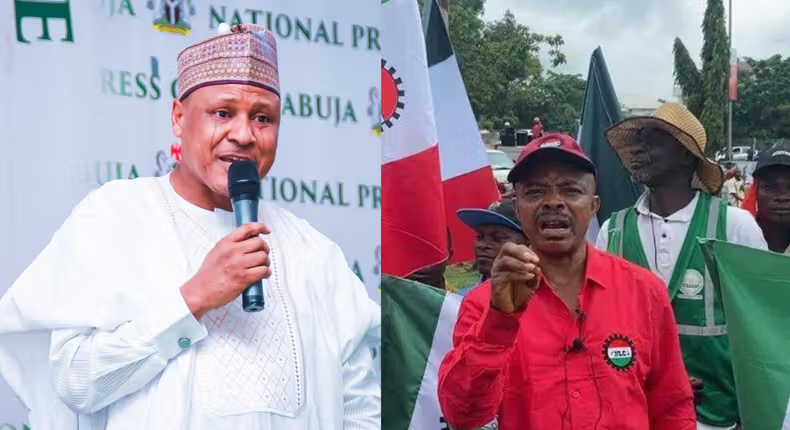The Federal Government of Nigeria has urged the Nigerian Labour Congress (NLC) to consider accepting a minimum wage offer that ensures workers’ welfare without triggering job losses. This appeal comes amidst ongoing negotiations between the government and labour unions regarding the new National Minimum Wage. Here’s a summary based on the context:
### Federal Government’s Appeal to Labour:
– The Federal Government is advocating for a balanced approach that addresses workers’ financial needs while safeguarding job opportunities across various sectors.
– The appeal underscores the government’s commitment to ensuring that any agreed-upon minimum wage is sustainable for employers, thereby preventing potential layoffs and economic instability.
– This plea is part of broader efforts to foster a constructive dialogue and reach a mutually beneficial agreement that considers both labour’s demands and the economic realities facing businesses.
### Background on Minimum Wage Negotiations:
– The negotiations between the Federal Government and labour unions, particularly the NLC, have been ongoing to establish a new minimum wage framework.
– Labour, represented by NLC, has advocated for a ₦250,000 minimum wage, emphasizing the need to uplift workers’ living standards amidst rising inflation and economic challenges.
– The government’s initial proposal stood at ₦62,000, reflecting efforts to balance worker welfare with economic feasibility.
### Context and Economic Considerations:
– Nigeria’s economy faces inflationary pressures and other economic challenges, influencing the government’s stance on wage adjustments.
– The appeal highlights the government’s caution against setting a minimum wage that could potentially strain business operations and lead to job losses.
– Both parties aim to achieve a consensus that ensures fairness for workers while promoting sustainable economic growth and stability.
In essence, the Federal Government’s persuasion for the NLC to accept a minimum wage offer that mitigates job losses underscores the delicate balance between enhancing workers’ welfare and maintaining economic stability in Nigeria.
